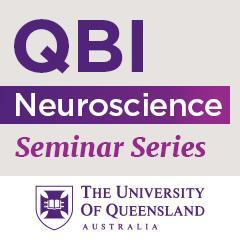Dr Albert Lee, NSW : "Application of proteomics to characterise mechanisms of neurodegenerative diseases”

Speaker:
Dr Albert Lee
Department of Biomedical Sciences, Macquarie University, New South Wales
Title: "Application of proteomics to characterise mechanisms of neurodegenerative diseases”
Abstract: Neurodegenerative disorders, such as amyotrophic lateral sclerosis (ALS) and frontotemporal dementia (FTD), are increasing in prevalence but lack targeted and mechanism-based therapies. Despite various biological stresses (e.g. oxidative stress) and processes (e.g. RNA metabolism) that appear to contribute to the pathogenesis of these diseases, the molecular events and converging pathways behind these diseases remain unclear. Both ALS and FTD are characterized by perturbations to protein and cellular homeostasis (“proteostasis”) that ultimately leads to pathological features, such as aberrant protein aggregation and inclusion formation within neurons, which correlate with neurodegeneration. Therefore, the central hypothesis to our research program is that ageing and cellular stresses (such as gene mutations) contribute to functional impairment of the proteostasis network, thereby facilitating aberrant neuronal protein aggregation.
To better understand ALS and FTD biology, the Centre for Motor Neuron Disease Research and Macquarie Neurology Clinic at Macquarie University employ a “proteogenomics” workflow that incorporates new genetic discoveries with high-throughput cellular and proteomic-based approaches. Specifically, our Neuroproteomics program employs unbiased and quantitative proteomics to screen for cellular pathway changes, protein-protein interactions, post-translational modifications (ubiquitination, phosphorylation and glycosylation), plasma biomarkers, and tissue proteomic profiling. The information gathered from these alternative proteomic approaches collectively enhances our understanding of the pathomechanisms of neurodegenerative diseases, which has recently revealed new roles of ALS/FTD mutations in CCNF (cyclin F). Our proteomic-based approaches enable us to generate proteomic/proteostasis profiles that offer value to basic sciences research and potentially identify therapeutic targets and biomarkers for ALS and FTD.
About Neuroscience Seminars
Neuroscience seminars at the QBI play a major role in the advancement of neuroscience in the Asia-Pacific region. The primary goal of these seminars is to promote excellence in neuroscience through the exchange of ideas, establishing new collaborations and augmenting partnerships already in place.
Seminars in the QBI Auditorium on Level 7 are held on Wednesdays at 12-1pm, which are sometimes simulcast on Zoom (with approval from the speaker). We also occassionally hold seminars from international speakers via Zoom. The days and times of these seminars will vary depending on the time zone of the speaker. Please see each seminar listed below for details.



